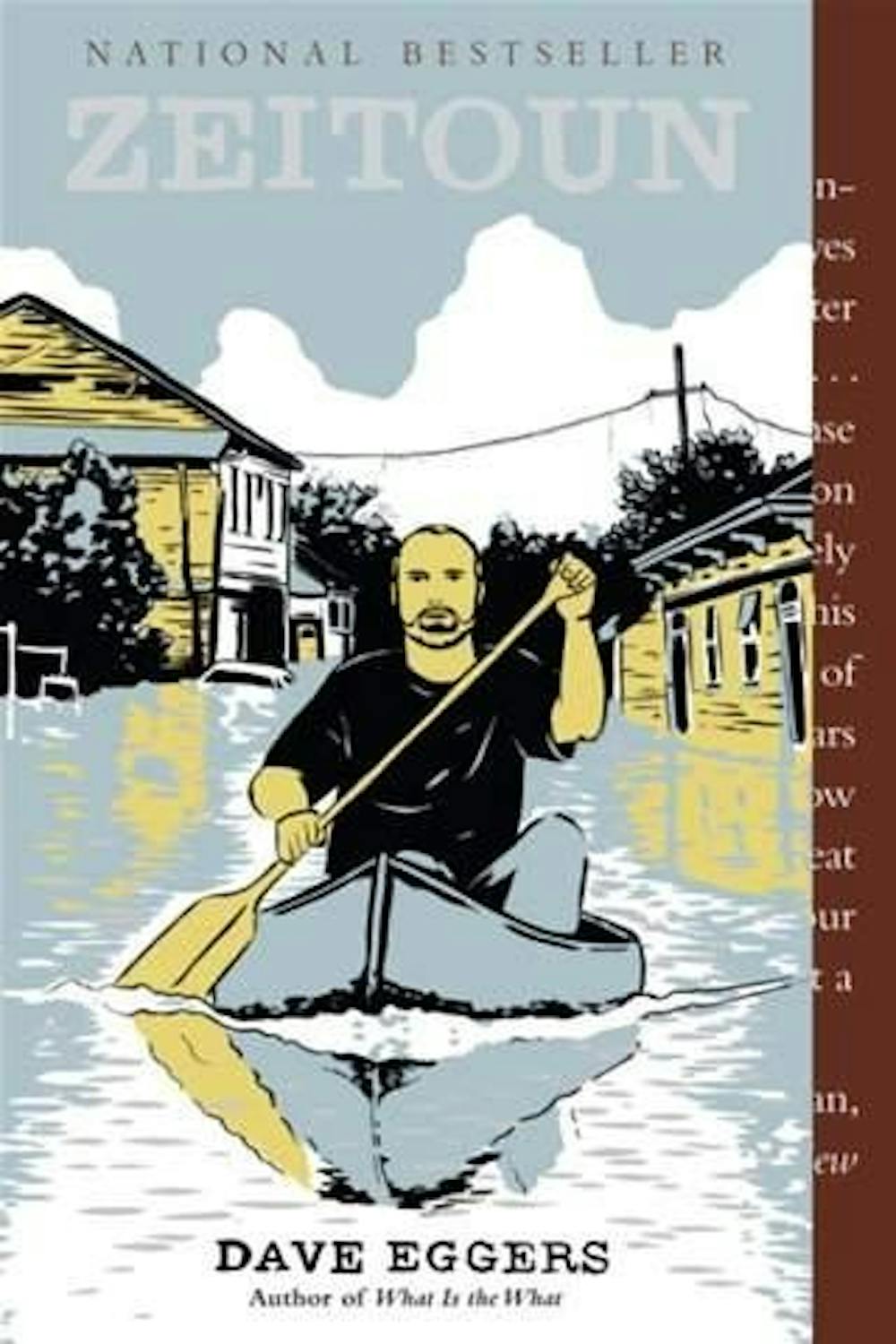At the end of each summer, Elon University’s freshman class turns the last pages of the common reading selection, a book chosen the previous fall by a committee of professors and students. This year’s selection is “Zeitoun” by Dave Eggers, a nonfiction narrative dealing with the ever-present issues of civil rights, racism and corruption, among others.
About the book
“Zeitoun” documents the story of Abdulrahman Zeitoun, a Syrian-American business owner in New Orleans who chose to remain in the city after Hurricane Katrina in the hope of aiding others’ survival. He canoed the flooded streets, toting fresh water and rescuing humans and animals alike.
Not long after he embarked on his mission, police and National Guardsmen arrested him without explanation. He was accused of terrorist activity, imprisoned and denied the right to a fair trial, a lawyer, a telephone call and basic medical care.
After 23 days of verbal and physical abuse by authorities, he was charged $500 for looting and bail was set at $75,000, an amount the author indicated to be far disproportionate to the crime. He was released on bail to find his home looted and his personal information stolen by authorities.
The book explores anti-Islamic sentiment in America and how prejudice corrupts the legal system.
Selection of the book
The Common Reading Selection Committee seriously considered two possibilities for this year’s selection, “The Immortal Life of Henrietta Lacks” by Rebecca Skloot and “Zeitoun.” The latter was ultimately chosen because it initiates discussion about many different issues, said Jeffrey Coker, Common Reading Selection Committee chair and director of general studies.
“The common reading is the beginning of a conversation,” he said. “(‘Zeitoun’) is the beginning of a conversation about diversity. It’s the beginning of a conversation about what good writing looks like. It’s the beginning of a conversation about Syria and the Middle East (and) crisis planning and response. It’s the beginning of a conversation about a lot of things.”
“Zeitoun” was pilot-tested in GST 110 classes last spring, and Coker said students responded to the book with much enthusiasm. The positive reception influenced the committee’s decision to assign the book as this year’s common reading.
So far, several freshmen have given the book a positive review. Freshman Connor DelPrete said he thoroughly enjoyed the book, and was moved by Zeitoun’s selflessness following Hurricane Katrina.
“I think it’s a really interesting book because it comes from a person’s point of view who was in New Orleans at the time of Katrina,” he said. “It’s very inspiring to see him lending a hand out to whoever is in need instead of leaving New Orleans.”
Connor Cummings, another freshman, said he appreciated the book for its exploration of multiple issues.
“(The book) not only gave me more insight into the events surrounding the hurricane from the perspective from someone who stayed through it, but it also showed me the racial profiling that is still going on today, even from our government,” he said. “I thought the book did an excellent job conveying both the chaotic life of the Zeitouns and the effects of the hurricane and racial profiling on all aspects of American life.”
The faculty and staff have shown excitement about the selection, too. Coker has distributed more than 300 copies to employees across campus.
“A lot of people are interested and have read (‘Zeitoun’),” he said. “It’s good writing and it has connections to a lot of things that we think are important.”
“Zeitoun” has inspired several related programs that will be held on campus this fall, including a New Orleans-themed dinner and educational opportunity in Colonnades, a lecture delivered by Byron Pitts, a CBS news correspondent who covered Hurricane Katrina and panels discussing both media and politics and the relationship between stress and violence.
“The big picture is it’s not just a book,” Coker said. “It’s really the start of a year-long conversation about all those different things. We program these (events) in subtle ways and not-so-subtle ways. (‘Zeitoun’) is not the last word, but rather the first word.”


